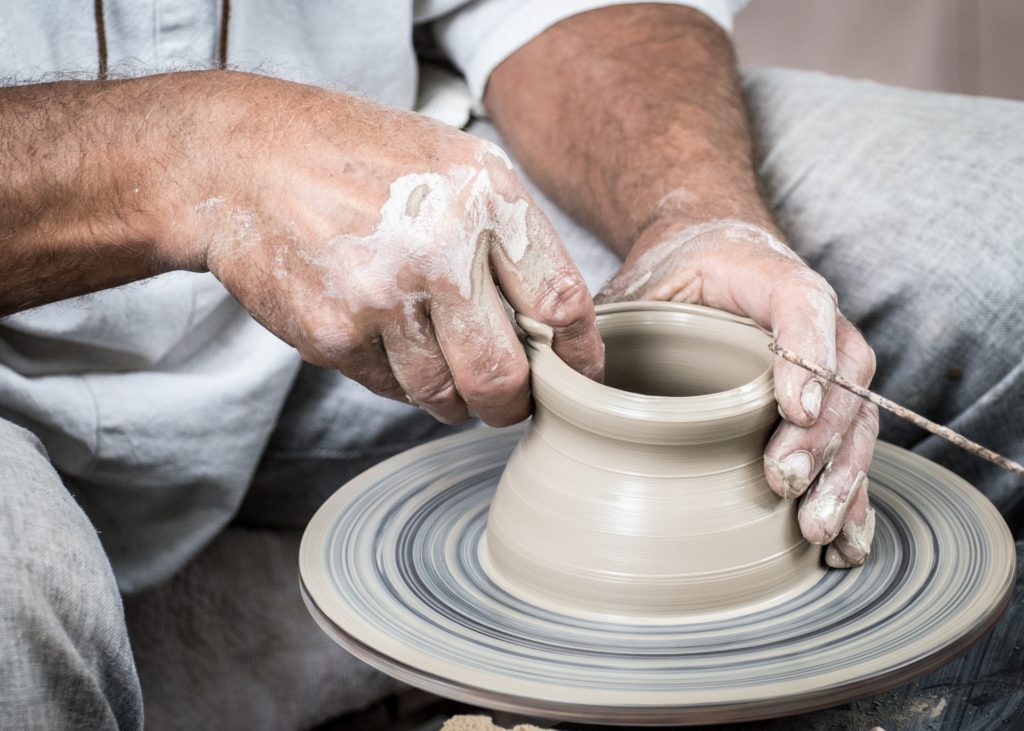Seven Steps to Staying Mentally Sharp as a Tack After 60

Photo Credit: Pixabay
Most of us like to imagine ourselves having a full, rich retirement. We have ideas of spending time with loved ones, taking up new hobbies, and traveling the world. But these plans can fall short if you aren’t taking care of yourself completely — including your mental health.
As you enter your 60s and the next phase of your life, there are many things you can do to keep yourself mentally sharp. We’ll discuss the different ways you can incorporate mind-boosting habits into your day-to-day life, as well as the best kinds of hobbies and activities to engage in. Whether you’re encountering minor memory lapses lately or have been managing a cognitive-impairing condition for several years, these activities offer wonderful benefits to your mental well-being.
To begin, don’t succumb to the idea that you have no control over any cognitive decline you might experience. It’s true that aging causes us to slow down a bit and certain diseases strike without a clear cause. However, if you don’t believe you ultimately have any impact — and you do! — then you’ll be a lot less likely to build your skills. You must truly commit to the idea that you can positively influence the way your mind ages, and look for opportunities to give it a little extra exercise.
Step One: Get Organized
It’s important to make certain things easy on ourselves so that we can save most of our brainpower for more challenging tasks. First, make sure that your living environment is kept tidy and free of clutter. You might think you’re used to it, but having too much going on around you can be distracting. It’s more difficult to absorb and maintain new information when the space around you is somewhat chaotic or over-stimulating.
Never underestimate the practicality of calendars and planners. Make it a habit to write down your appointments and events as soon as you plan them; not only can writing it help reinforce the information, it’s the easiest way to keep track of your responsibilities. The truth is, you’re only going to have so much room in your memory for easy recall, and there’s really no major benefit to keeping track of every single time commitment mentally.
Further, make sure that the things you use the most often have designated places around your home. Keep items like your keys, glasses, robe, devices, and remotes in the same spot. The less you have to wrack your brain for where you happened to throw your slippers last night before bed, for example, the better!

Photo Credit: Pixabay
If you do lose track of something, take a step back and retrace your steps. Talk yourself through the last time you remembered seeing the item. What were you doing? Was anyone else with you who could have moved it? Did you get called to another room with the item in your hand? If you’re having trouble remembering which spot you designated for an item, consider using some kind of marking system. You could use colored tape or stick-on jewels to mark the television remote as well as the drawer you keep it in; you’ll know exactly what to look for when it’s time to stow the remote, plus have something on the drawer to catch your eye when you’re sitting down to watch something.
Step Two: Eat Well
Not only do you need to maintain a healthy diet, you’ll want to ensure that you’re keeping up with a consistent eating schedule. You’ve probably noticed a decline in appetite as you’ve gotten older, and that’s generally normal. It’s important, however, to make sure you’re regularly eating three meals so you have the energy and focus you’ll need to take on the day. Plus, even if your empty stomach isn’t distracting you, you’ll feel better with nutrients in your system — boosting your focus and your mood.
You’ll want to talk to your doctor about the best diet plan for you, but there are quite a few brain-boosting foods that you may want to consider adding to your grocery list. In general, make sure you’re getting plenty of whole grains, vegetables, fruits, and protein. Do what you can to maximize each meal; the more nutrient-rich items on your plate, the more satisfied you’ll feel both after your meal and overall. When you feel good, your mind is more at ease and can more easily accept new information, giving you a clearer head for whatever task lies ahead.
Step Three: Get Enough Sleep

Photo credit: Pixabay
Sleep is a crucial part of your wellbeing at any age, and it’s especially important for good mental health. It’s the time that our brains take to commit our memories from the day to long-term, to consolidate the new pieces of information we gathered throughout the day.
The plus side is that seniors actually tend to need less sleep than they did in their younger years. On average, most should sleep only 7-8 hours per night to get the rest they need. Sleep troubles aren’t entirely uncommon for older adults, but try to avoid taking too many naps throughout the day. It’s tempting to take a quick snooze on a rainy afternoon, but crashing for too long can ultimately make you drowsier, making it difficult to concentrate.
Step Four: Get Active in Cognitively Stimulating Activities
We all know that leading an active lifestyle leads to better physical health, but not everyone realizes it’s also an important component of improving your memory. Staying active increases blood flow to the entire body — including your brain! You might not be able to engage in the same activities you did in your youth or may have to make some minor adaptations to accommodate your current ability level, but there are all kinds of activities that can double as a workout for your body and mind.
Choosing which activity to get involved in depends a lot on you. Are there any hobbies you’ve always wanted to try but didn’t have the time? Places you said you’d visit? Experiences you never got around to trying? It’s never a bad thing to try activities you’re already familiar with if they get you more active or social, but don’t be afraid to branch out. Learning new skills is the most organic way to exercise your brain, and doing it simply because you want to takes the pressure off.
The options are practically endless, but here are a few ideas for mentally-stimulating activities to get you started:
- Dancing/taking dance lessons
- Taking a class at a local college or community center
- Joining a book club
- Learning how to play a musical instrument
- Learning a new language
- Playing a weekly or nightly game of bridge
- Volunteering at a local charity

Photo Credit: Pixabay
Some seniors even discover that they’re more fulfilled when they’re working and end up taking on a part-time job. You might be tempted to re-join the field you spent your life working in, but trying something completely new will benefit you the most cognitively. It can be as simple as going from the corporate side of retail to working in a store: you’ll be able to use the knowledge you acquired throughout your career, but still build new skills.
Step Five: Use All Your Senses

Photo Credit: Pixabay
Our brains want more than just stimulation — they want varied stimulation! Look for every opportunity to give yourself a sensory indulgence, employing use of your sight, smell, taste, touch, and hearing abilities all at once. You might consider:
- Taking a walk through a community garden, beach, or hiking trail
- Trying a sculpting or pottery class
- Cooking, baking, or taking culinary classes
- Heading to a local café with live music
- Going camping
- Visiting the farmers market
- Building model airplanes, trains, or ships
Each of these activity uses multiple (if not all) of your senses, giving your brain a well-rounded boost of activity.
You can even add sensory stimulation to your everyday routine. Try switching your dominant hand for a day, or repairing that leaky pipe under the sink yourself. Come up with a sensory scavenger hunt to complete on your daily walk — items might include saying hello to a neighbor, spotting a hummingbird, picking up a fallen sycamore leaf, or catching a whiff of fresh bread from the nearby bakery. Find opportunities to challenge your senses in new ways and expose yourself to new sensory experiences as much as you can.
Step Six: Challenge Yourself Throughout the Day
Just as you should seek daily sensory stimulation, you should also find ways to challenge your thinking skills. You might consider:
- Taking a different route to a friend or neighbor’s house
- Coming up with an organized catalog system for your book, record, or movie collection
- Giving yourself a mental recap of where you left off in your favorite book before picking it back up
- Practicing spelling the names of grocery items as you put them away
- Arranging your linen closet in warm-to-cool weather, rainbow, or light-to-dark order
The great thing about exercising your brain is there are constant opportunities to challenge yourself; you just have to start looking for them!
Step Seven: Make It a Social Event
Staying social is both an excellent way to stay sharp, and an opportunity to create fun, meaningful connections with others. Any time you can incorporate a loved one into your brain-boosting activities, try to take advantage. A few ideas include:
- Teaching someone else a skill
- Having someone teach you a skill
- Playing cards together
- Taking turns reading aloud with a grandchild
- Completing a crossword puzzle together
- Putting on a family play
- Playing a game of charades
It can even be as simple as asking a loved one if they’re interested in taking an art class with you. Not only will you have someone to enjoy the activity with, you’ll be more likely to engage with others in the class if you know someone else there.
Whatever the activity, take the opportunity to bond with your loved one. Learn about their job, inquire about the kinds of goals and dreams they have, and share your own thoughts and life observations. Having meaningful connections as well as a strong support system is a vital component of positive mental health, so never underestimate the power of a friend!

Photo Credit: Pixabay
Staying sharp after 60 doesn’t have to be difficult, but it does require you to be more deliberate with your daily routine and activities. Make sure you’re constantly trying new things, and don’t be afraid to shake up your agenda every now and then. If you normally go to the mall every Tuesday, switch things around by visiting the senior center and trying a new class instead. Ask questions. Read different sections of the newspaper than usual or a new genre of book. At the very least, you’ll be strengthening your cognitive abilities, but often you’ll discover a new passion you may have otherwise missed.
Finally, always take time for yourself. Take some time to listen to your favorite record, write in a journal, or reach out to a loved one you’ve lost touch with. Do things that make you happy and cut yourself slack for any shortcomings you face — whether or not they’re related to age, we all have them. Focus on the positives and look for the joy in life, and soon your overall mental wellness will lift to new heights.
Leave a Reply